Edie Melson's Blog, page 338
July 8, 2016
Do I Really Need a Literary Agent?
by Vonda Skelton @VondaSkelton
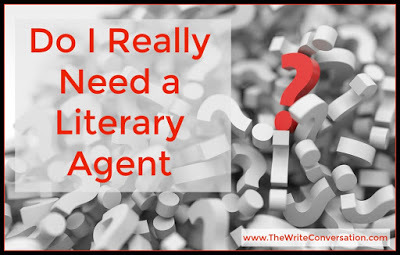 When I teach at writers conferences, I often get the question, "Do I really need an agent?" Well, you'll be happy to know I can confidently and unequivocally answer that question in three simple words: Yes, no, and maybe.
When I teach at writers conferences, I often get the question, "Do I really need an agent?" Well, you'll be happy to know I can confidently and unequivocally answer that question in three simple words: Yes, no, and maybe.
When I wrote my first book, I knew I didn't want an agent. I mean, why would I want to give a whopping 15 percent of my earnings to a total stranger when I could do it myself and keep all that money?Then the rejections came—years of them—and I finally began to think that perhaps 85 percent of something would be better than 100 percent of nothing! So I started my search for an agent, and the only nibbles I got were from agents with shady reputations. And we won't talk about that today.
Fast forward eight years to 2001 and I finally have a book contract for Bitsy and the Mystery at Tybee Island—without the help of an agent.
So, did I do the right thing by publishing without an agent? I'll never know. But I do know this: When it came time to write my first women's non-fiction book, I didn't even consider trying to find a publisher as an un-agented writer. And I'm so glad I didn't.
 You've probably heard finding a good agent is
You've probably heard finding a good agent is
harder than finding a publisher.You've probably heard it said that finding a good agent is harder than finding a publisher. That may be true. But it's also true that once you find a good agent, it's a lot easier to land a publishing contract. Many publishers now use agents as their clearinghouse to wade through the junk to find the publishable writers. Those publishers know that a good agent will only take on good writers, so the fact that a reputable agent is presenting you lends credibility to your work.
A good agent will know who's looking for what, what genre has the best chance at certain houses, and whether a publisher just signed a deal for a book similar to yours. Good agents have connections, know the latest scoop, and many of them have worked as editors themselves.
So let's look at the three simple words and their meaning in response to the agent question.
Yes...You most likely need an agent if you want to be published by a large publisher. Every now and then we'll hear the story of an unsolicited manuscript being picked up by a large house, but most major publishers will not even consider an un-agented manuscript sent in by the author.You need an agent if you don't have the time, patience, or knowledge to reach multiple editors simultaneously.You're most likely to need an agent if you're not going to writer's conferences where you're meeting with editors face-to-face.
No…You don't need an agent if you're interested in any form of self-publishing, such as POD, vanity press, or old-fashioned self-publishing.You don't need an agent if the Writer's Market Guide or the Christian Writer's Market Guide state the publisher does not work with agents.If an editor at a writer's conference tells you that he or she is interested in seeing your manuscript and then personally tells you how to submit it, you do not have to have an agent.You don't need an agent for poetry or magazine articles.
Maybe...You may not need an agent for children's material, especially shorter pieces like picture books and board books. Just be sure to do your research and follow the writer's guidelines.You may not need an agent for a small press, regional press, or university press. Again, check the guidelines in the Writer's Market Guide.Even if an editor offers you a contract without agent representation, you may want to consider seeking an agent at that point. There are many agents who would love to represent you in the negotiation phase when you already have a contract--and their involvement could mean a higher advance or higher royalty schedule for you.
As you can see, there's no one-word answer to that question. So, go to conferences, take classes, be part of a committed critique group and review today's info. I have a feeling you'll know the answer to your question.
So what are your thoughts about having an agent (Please don’t mention any names)? Don’t forget to join the conversation!
TWEETABLESDo I really need a literary agent? @VondaSkelton on @EdieMelson (Click to Tweet)
Yes, No, Maybe - the answer to if you need an agent - @VondaSkelton (Click to Tweet)
 Vonda Skelton is a speaker and the author of four books: Seeing Through the Lies: Unmasking the Myths Women Believe and the 3-book Bitsy Burroughs mysteries for children 8-12 yo. She’s the founder and co-director of Christian Communicators Conference, offering speakers’ training and community for Christian women called to ministry. Vonda is a frequent instructor at writer’s conferences and keynotes at business, women’s, and associational events. You can find out more about Vonda, as well as writing opportunities and instruction at her writer’s blog, The Christian Writer’s Den at VondaSkelton.com.
Vonda Skelton is a speaker and the author of four books: Seeing Through the Lies: Unmasking the Myths Women Believe and the 3-book Bitsy Burroughs mysteries for children 8-12 yo. She’s the founder and co-director of Christian Communicators Conference, offering speakers’ training and community for Christian women called to ministry. Vonda is a frequent instructor at writer’s conferences and keynotes at business, women’s, and associational events. You can find out more about Vonda, as well as writing opportunities and instruction at her writer’s blog, The Christian Writer’s Den at VondaSkelton.com.
 When I teach at writers conferences, I often get the question, "Do I really need an agent?" Well, you'll be happy to know I can confidently and unequivocally answer that question in three simple words: Yes, no, and maybe.
When I teach at writers conferences, I often get the question, "Do I really need an agent?" Well, you'll be happy to know I can confidently and unequivocally answer that question in three simple words: Yes, no, and maybe.When I wrote my first book, I knew I didn't want an agent. I mean, why would I want to give a whopping 15 percent of my earnings to a total stranger when I could do it myself and keep all that money?Then the rejections came—years of them—and I finally began to think that perhaps 85 percent of something would be better than 100 percent of nothing! So I started my search for an agent, and the only nibbles I got were from agents with shady reputations. And we won't talk about that today.
Fast forward eight years to 2001 and I finally have a book contract for Bitsy and the Mystery at Tybee Island—without the help of an agent.
So, did I do the right thing by publishing without an agent? I'll never know. But I do know this: When it came time to write my first women's non-fiction book, I didn't even consider trying to find a publisher as an un-agented writer. And I'm so glad I didn't.
 You've probably heard finding a good agent is
You've probably heard finding a good agent isharder than finding a publisher.You've probably heard it said that finding a good agent is harder than finding a publisher. That may be true. But it's also true that once you find a good agent, it's a lot easier to land a publishing contract. Many publishers now use agents as their clearinghouse to wade through the junk to find the publishable writers. Those publishers know that a good agent will only take on good writers, so the fact that a reputable agent is presenting you lends credibility to your work.
A good agent will know who's looking for what, what genre has the best chance at certain houses, and whether a publisher just signed a deal for a book similar to yours. Good agents have connections, know the latest scoop, and many of them have worked as editors themselves.
So let's look at the three simple words and their meaning in response to the agent question.
Yes...You most likely need an agent if you want to be published by a large publisher. Every now and then we'll hear the story of an unsolicited manuscript being picked up by a large house, but most major publishers will not even consider an un-agented manuscript sent in by the author.You need an agent if you don't have the time, patience, or knowledge to reach multiple editors simultaneously.You're most likely to need an agent if you're not going to writer's conferences where you're meeting with editors face-to-face.
No…You don't need an agent if you're interested in any form of self-publishing, such as POD, vanity press, or old-fashioned self-publishing.You don't need an agent if the Writer's Market Guide or the Christian Writer's Market Guide state the publisher does not work with agents.If an editor at a writer's conference tells you that he or she is interested in seeing your manuscript and then personally tells you how to submit it, you do not have to have an agent.You don't need an agent for poetry or magazine articles.
Maybe...You may not need an agent for children's material, especially shorter pieces like picture books and board books. Just be sure to do your research and follow the writer's guidelines.You may not need an agent for a small press, regional press, or university press. Again, check the guidelines in the Writer's Market Guide.Even if an editor offers you a contract without agent representation, you may want to consider seeking an agent at that point. There are many agents who would love to represent you in the negotiation phase when you already have a contract--and their involvement could mean a higher advance or higher royalty schedule for you.
As you can see, there's no one-word answer to that question. So, go to conferences, take classes, be part of a committed critique group and review today's info. I have a feeling you'll know the answer to your question.
So what are your thoughts about having an agent (Please don’t mention any names)? Don’t forget to join the conversation!
TWEETABLESDo I really need a literary agent? @VondaSkelton on @EdieMelson (Click to Tweet)
Yes, No, Maybe - the answer to if you need an agent - @VondaSkelton (Click to Tweet)
 Vonda Skelton is a speaker and the author of four books: Seeing Through the Lies: Unmasking the Myths Women Believe and the 3-book Bitsy Burroughs mysteries for children 8-12 yo. She’s the founder and co-director of Christian Communicators Conference, offering speakers’ training and community for Christian women called to ministry. Vonda is a frequent instructor at writer’s conferences and keynotes at business, women’s, and associational events. You can find out more about Vonda, as well as writing opportunities and instruction at her writer’s blog, The Christian Writer’s Den at VondaSkelton.com.
Vonda Skelton is a speaker and the author of four books: Seeing Through the Lies: Unmasking the Myths Women Believe and the 3-book Bitsy Burroughs mysteries for children 8-12 yo. She’s the founder and co-director of Christian Communicators Conference, offering speakers’ training and community for Christian women called to ministry. Vonda is a frequent instructor at writer’s conferences and keynotes at business, women’s, and associational events. You can find out more about Vonda, as well as writing opportunities and instruction at her writer’s blog, The Christian Writer’s Den at VondaSkelton.com.
Published on July 08, 2016 01:00
July 7, 2016
When You Want to Be Somewhere Else with Your Writing
by Lynn H Blackburn @LynnHBlackburn
 I felt so sorry for him.
I felt so sorry for him.
My youngest son was surveying the scene on his first morning of day camp—and he was not impressed. Kids were running around playing with hula hoops, bouncy balls, Legos, Crayons, and board games. It was a kids’ paradise in there, but the mutinous expression on his face refused to budge.He’d been okay an hour earlier. He was excited about this new opportunity, until we dropped his older brother off at a different day camp. One for kids a bit older. One with cheering counselors, multiple inflatables, and a climbing tower.
From the minute we climbed out of the van, my little guy was in full revolt. He dragged his feet, he pouted, he glared at everyone we encountered. He wanted to go home and not go to his camp at all.
As I stood at the back of the room and watched him try to come to terms with his reality, my heart broke. There was so much awesomeness in front of him, but he couldn’t see it because He Wanted to be Somewhere Else.
Maybe you can relate?
 Your blog is getting great attention, but you don’t want to be a blogger. You want to be a speaker.An editor is interested in your devotional, but no one will take an interest in your historical.You’ve found success with freelance work, but now you don’t have time for your epic fantasy.Your poetry has won awards, but no one will look at the Bible study you’ve poured your heart into.Or maybe you’ve been published with a small press, but you yearn to be affiliated with one of the big houses.
Your blog is getting great attention, but you don’t want to be a blogger. You want to be a speaker.An editor is interested in your devotional, but no one will take an interest in your historical.You’ve found success with freelance work, but now you don’t have time for your epic fantasy.Your poetry has won awards, but no one will look at the Bible study you’ve poured your heart into.Or maybe you’ve been published with a small press, but you yearn to be affiliated with one of the big houses.
You Want to be Somewhere Else.
I get it. I really do and I’m not going to tell you wanting to be somewhere else is wrong. I would never suggest anyone give up on a dream or shelve a project that is their passion.
But …(Why is there always a but)?
If your dream of something “other” is keeping you from appreciating the awesomeness in front of you, then it’s time to do some soul searching. Ask yourself some tough questions and be brutally honest in your answers.
How is your dream of something else impacting your ability to enjoy where you are? - Are you interacting with and praying for the readers you have or are you neglecting them? Are you meeting your deadlines or letting them slide? Are you actually honing your craft or just spending time thinking about what you’ll do when that big contract finally comes in?
 What is it you want and what are you doing to make it happen? - Would you enjoy a different project more? Do you want to make more money? Maybe you’d love more fame? While you wait, are you becoming an expert in your field? Building your platform? Expanding your contacts in the industry? Writing another book—and then another?
What is it you want and what are you doing to make it happen? - Would you enjoy a different project more? Do you want to make more money? Maybe you’d love more fame? While you wait, are you becoming an expert in your field? Building your platform? Expanding your contacts in the industry? Writing another book—and then another?
When do you want it? - Ok. I get it. You want it now. But can you accept the reality that God knows what your heart desires and He may be choosing to hold you back for reasons you don’t understand? Can you find rest in His timing?
Where do you see yourself in a year? Three years? Five years? - Again, nothing wrong with dreaming big, but are those dreams based in any sort of publishing reality? Do you know what kind of speed most publishing houses move at? (Hint…the word glacial should be in your answer).
Why do you want it? - This is the one that always trips me up. My first answers start out with “I think I’d enjoy the project more,” but the further I dig I always find a root of pride in there somewhere. More often than not, I want something because I think it’s better. Better for me. Or it makes me look better in the eyes of others. The problem is that far too often, I haven’t given one second of thought to the possibility that God may not think it would be better for me at all.
Ask God to help you be honest as you answer these questions. Ask Him to give you a heart of gratitude for the wonderful things He has already put in your path. Spend time reviewing all the ways He has confirmed your path. Then ask Him to give you His Joy in the place where you are now and courage to pursue your dreams for the future.
By the way—my son’s bad attitude cost him a couple of hours of fun. Then he had the opportunity to pet a camel, and a joey, and some baby goats . . . things his older brother didn’t get to experience over there at that “other” place. By the time I picked him up, he’d decided his camp was “awesome” and that while he still wants to go to his brother’s camp when he’s old enough, the one he went to was perfect for him right now.
So how about you? Are you struggling to enjoy the things God has given you now because you are hoping for more later? Do you have any tips for finding joy in your present circumstances?
Let’s talk about it in the comments!
Don’t forget to join the conversation.
TWEETABLEWhen you want to be somewhere else with your #writing - @LynnHBlackburn (Click to Tweet)
Finding joy in your present #writing circumstances - @LynnHBlackburn (Click to Tweet)
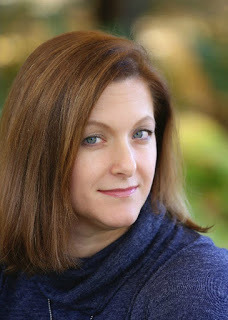 Lynn Huggins Blackburn believes in the power of stories, especially those that remind us that true love exists, a gift from the Truest Love.
Lynn Huggins Blackburn believes in the power of stories, especially those that remind us that true love exists, a gift from the Truest Love.
She’s passionate about CrossFit, coffee, and chocolate (don’t make her choose) and experimenting with recipes that feed both body and soul.
She lives in South Carolina with her true love, Brian, and their three children. You can follow her real life happily ever after at http://www.lynnhugginsblackburn.com.
 I felt so sorry for him.
I felt so sorry for him.My youngest son was surveying the scene on his first morning of day camp—and he was not impressed. Kids were running around playing with hula hoops, bouncy balls, Legos, Crayons, and board games. It was a kids’ paradise in there, but the mutinous expression on his face refused to budge.He’d been okay an hour earlier. He was excited about this new opportunity, until we dropped his older brother off at a different day camp. One for kids a bit older. One with cheering counselors, multiple inflatables, and a climbing tower.
From the minute we climbed out of the van, my little guy was in full revolt. He dragged his feet, he pouted, he glared at everyone we encountered. He wanted to go home and not go to his camp at all.
As I stood at the back of the room and watched him try to come to terms with his reality, my heart broke. There was so much awesomeness in front of him, but he couldn’t see it because He Wanted to be Somewhere Else.
Maybe you can relate?
 Your blog is getting great attention, but you don’t want to be a blogger. You want to be a speaker.An editor is interested in your devotional, but no one will take an interest in your historical.You’ve found success with freelance work, but now you don’t have time for your epic fantasy.Your poetry has won awards, but no one will look at the Bible study you’ve poured your heart into.Or maybe you’ve been published with a small press, but you yearn to be affiliated with one of the big houses.
Your blog is getting great attention, but you don’t want to be a blogger. You want to be a speaker.An editor is interested in your devotional, but no one will take an interest in your historical.You’ve found success with freelance work, but now you don’t have time for your epic fantasy.Your poetry has won awards, but no one will look at the Bible study you’ve poured your heart into.Or maybe you’ve been published with a small press, but you yearn to be affiliated with one of the big houses.You Want to be Somewhere Else.
I get it. I really do and I’m not going to tell you wanting to be somewhere else is wrong. I would never suggest anyone give up on a dream or shelve a project that is their passion.
But …(Why is there always a but)?
If your dream of something “other” is keeping you from appreciating the awesomeness in front of you, then it’s time to do some soul searching. Ask yourself some tough questions and be brutally honest in your answers.
How is your dream of something else impacting your ability to enjoy where you are? - Are you interacting with and praying for the readers you have or are you neglecting them? Are you meeting your deadlines or letting them slide? Are you actually honing your craft or just spending time thinking about what you’ll do when that big contract finally comes in?
 What is it you want and what are you doing to make it happen? - Would you enjoy a different project more? Do you want to make more money? Maybe you’d love more fame? While you wait, are you becoming an expert in your field? Building your platform? Expanding your contacts in the industry? Writing another book—and then another?
What is it you want and what are you doing to make it happen? - Would you enjoy a different project more? Do you want to make more money? Maybe you’d love more fame? While you wait, are you becoming an expert in your field? Building your platform? Expanding your contacts in the industry? Writing another book—and then another?When do you want it? - Ok. I get it. You want it now. But can you accept the reality that God knows what your heart desires and He may be choosing to hold you back for reasons you don’t understand? Can you find rest in His timing?
Where do you see yourself in a year? Three years? Five years? - Again, nothing wrong with dreaming big, but are those dreams based in any sort of publishing reality? Do you know what kind of speed most publishing houses move at? (Hint…the word glacial should be in your answer).
Why do you want it? - This is the one that always trips me up. My first answers start out with “I think I’d enjoy the project more,” but the further I dig I always find a root of pride in there somewhere. More often than not, I want something because I think it’s better. Better for me. Or it makes me look better in the eyes of others. The problem is that far too often, I haven’t given one second of thought to the possibility that God may not think it would be better for me at all.
Ask God to help you be honest as you answer these questions. Ask Him to give you a heart of gratitude for the wonderful things He has already put in your path. Spend time reviewing all the ways He has confirmed your path. Then ask Him to give you His Joy in the place where you are now and courage to pursue your dreams for the future.
By the way—my son’s bad attitude cost him a couple of hours of fun. Then he had the opportunity to pet a camel, and a joey, and some baby goats . . . things his older brother didn’t get to experience over there at that “other” place. By the time I picked him up, he’d decided his camp was “awesome” and that while he still wants to go to his brother’s camp when he’s old enough, the one he went to was perfect for him right now.
So how about you? Are you struggling to enjoy the things God has given you now because you are hoping for more later? Do you have any tips for finding joy in your present circumstances?
Let’s talk about it in the comments!
Don’t forget to join the conversation.
TWEETABLEWhen you want to be somewhere else with your #writing - @LynnHBlackburn (Click to Tweet)
Finding joy in your present #writing circumstances - @LynnHBlackburn (Click to Tweet)
 Lynn Huggins Blackburn believes in the power of stories, especially those that remind us that true love exists, a gift from the Truest Love.
Lynn Huggins Blackburn believes in the power of stories, especially those that remind us that true love exists, a gift from the Truest Love. She’s passionate about CrossFit, coffee, and chocolate (don’t make her choose) and experimenting with recipes that feed both body and soul.
She lives in South Carolina with her true love, Brian, and their three children. You can follow her real life happily ever after at http://www.lynnhugginsblackburn.com.
Published on July 07, 2016 01:00
July 6, 2016
The Practice of Writing With Intentional Consistency
By Edie Melson @EdieMelson
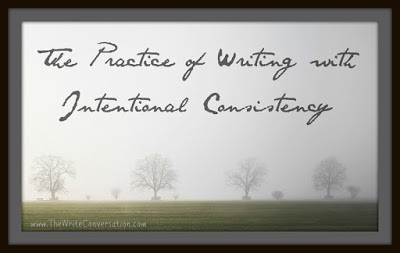 The title of this post may seem too obvious to merit mention, but I would beg you to stick with me. Life these days is incredibly busy. We’re subdividing our time into smaller and smaller portions, leaving us with just more details to keep track of.
The title of this post may seem too obvious to merit mention, but I would beg you to stick with me. Life these days is incredibly busy. We’re subdividing our time into smaller and smaller portions, leaving us with just more details to keep track of.
Writing can easily fall between the cracks.
But I would propose that worked-in-between-the-insanityisn’t where our writing belongs. We have been given a gift and entrusted with a calling. I’ve come to believe it’s poor stewardship on my part to ignore that. So I’ve decided to begin the practice of writing with intentional consistency.
But all around, no matter my good intentions, life continues to loom and intrude.
So how am I putting intentional consistency into practice?
 Determine your most creative hours of the day.1. I’ve determined my most creative hours of the day and blocked them off on my calendar. For me it’s the morning—anytime before noon. Truthfully, I’m not able to spend every single morning writing, but with the time blocked off, it makes me weigh other opportunities differently.
Determine your most creative hours of the day.1. I’ve determined my most creative hours of the day and blocked them off on my calendar. For me it’s the morning—anytime before noon. Truthfully, I’m not able to spend every single morning writing, but with the time blocked off, it makes me weigh other opportunities differently.
2. I set weekly goals. I prefer weekly over daily goals because they’re easier to meet. If I miss a day for some reason, I still have the rest of the week to meet the expectations I’ve set. Sometimes I structure my goals around word count, but not always. Right now I’m working on a series of devotions, so I have a set number I want to finish editing each week.
3. I write regularly.No, I don’t always write something every day. I believe writers should have a Sabbath rest. But I write when I don’t feel like it, as well as when I feel like it. Hear my heart on this. We are all busy. We all have important things that need doing. But if we’re going to call ourselves writers then writing MUST be one of those things. We can’t just talk about writing, critique other writers, or plan to write when life slows down. If we choose that attitude then we’re no better than the rich man in Luke 12 who was planning to build bigger barns. We are not promised tomorrow and we’ve got to quit squandering today.
4. I respect my calling. This is an attitude change for me. Through prayer and study, I’ve determined that God expects me to be obedient. I know, not a huge revelation, but just wait. That obedience isn’t supposed to only be in regard to the hard or the difficult things in my life. Obedience is foundational to everything. You see, I love writing and because it’s fun, I had developed the idea that it wasn’t important. And by the way, this has nothing to do with whether or not I'm making money with my writing. It has to do with obedience only.
 I'm willing to let God set my priorities.5. I’m willing to let God set my priorities, even when it means saying no. I’m doing my best to model my life on Jesus. As I’ve studied His life, I’ve realized that He was not constrained by someone else’s agenda—even when it was urgent. He walked away from crowds who needed healing, those who were hurting, even disciples who were confused. Only God set His priorities. Everywhere around us are ministries that need workers, children who need babysitting, and loved ones who need help. I am not God. I cannot be everywhere at once. God is the only one who can make sense of all the needs surrounding me. When He says no, I go with it. When He says write, I sit down and write.
I'm willing to let God set my priorities.5. I’m willing to let God set my priorities, even when it means saying no. I’m doing my best to model my life on Jesus. As I’ve studied His life, I’ve realized that He was not constrained by someone else’s agenda—even when it was urgent. He walked away from crowds who needed healing, those who were hurting, even disciples who were confused. Only God set His priorities. Everywhere around us are ministries that need workers, children who need babysitting, and loved ones who need help. I am not God. I cannot be everywhere at once. God is the only one who can make sense of all the needs surrounding me. When He says no, I go with it. When He says write, I sit down and write.
6. I’ve enlisted a team. Actually, I have a couple of them. I have a prayer team who pray specifically for me and my writing ministry. I also have a group of writers that I meet with regularly. Both groups hold me accountable and help me remember my priorities. They also give me the perspective I need to make wise choices.
7. I now take time off. I’ve tried to work every waking hour I can, and it just doesn’t work. I’m not capable of sustaining that time of schedule. It makes me cranky, tired, and generally difficult to live with. It’s also NOT fair to my family and friends. Relationships do matter. When my life is out of balance, my calling isn’t the only thing that suffers.
8. I nurture my relationship with God. This is foundational and without it, numbers 1 through 7 are meaningless. I make regular times of prayer and study a priority. I’ve discovered—the hard way—that the crazier life gets, the more time I need with God.
None of these eight things is earth shattering, in fact they’re fairly obvious unless we’re applying them to ourselves. For me though, they required a dramatic shift in thinking and acting. I’d love for you to share your thoughts on intentional consistency in your writing life. Be sure to share your comments in the section below.
Don’t forget to join the conversation!Blessings,Edie
TWEETABLESThe practice of #writing with intentional consistency -@EdieMelson (Click to Tweet)
Writers write. Learning to practiceintentional consistency with #writing - @EdieMelson (Click to Tweet)
 The title of this post may seem too obvious to merit mention, but I would beg you to stick with me. Life these days is incredibly busy. We’re subdividing our time into smaller and smaller portions, leaving us with just more details to keep track of.
The title of this post may seem too obvious to merit mention, but I would beg you to stick with me. Life these days is incredibly busy. We’re subdividing our time into smaller and smaller portions, leaving us with just more details to keep track of. Writing can easily fall between the cracks.
But I would propose that worked-in-between-the-insanityisn’t where our writing belongs. We have been given a gift and entrusted with a calling. I’ve come to believe it’s poor stewardship on my part to ignore that. So I’ve decided to begin the practice of writing with intentional consistency.
But all around, no matter my good intentions, life continues to loom and intrude.
So how am I putting intentional consistency into practice?
 Determine your most creative hours of the day.1. I’ve determined my most creative hours of the day and blocked them off on my calendar. For me it’s the morning—anytime before noon. Truthfully, I’m not able to spend every single morning writing, but with the time blocked off, it makes me weigh other opportunities differently.
Determine your most creative hours of the day.1. I’ve determined my most creative hours of the day and blocked them off on my calendar. For me it’s the morning—anytime before noon. Truthfully, I’m not able to spend every single morning writing, but with the time blocked off, it makes me weigh other opportunities differently. 2. I set weekly goals. I prefer weekly over daily goals because they’re easier to meet. If I miss a day for some reason, I still have the rest of the week to meet the expectations I’ve set. Sometimes I structure my goals around word count, but not always. Right now I’m working on a series of devotions, so I have a set number I want to finish editing each week.
3. I write regularly.No, I don’t always write something every day. I believe writers should have a Sabbath rest. But I write when I don’t feel like it, as well as when I feel like it. Hear my heart on this. We are all busy. We all have important things that need doing. But if we’re going to call ourselves writers then writing MUST be one of those things. We can’t just talk about writing, critique other writers, or plan to write when life slows down. If we choose that attitude then we’re no better than the rich man in Luke 12 who was planning to build bigger barns. We are not promised tomorrow and we’ve got to quit squandering today.
4. I respect my calling. This is an attitude change for me. Through prayer and study, I’ve determined that God expects me to be obedient. I know, not a huge revelation, but just wait. That obedience isn’t supposed to only be in regard to the hard or the difficult things in my life. Obedience is foundational to everything. You see, I love writing and because it’s fun, I had developed the idea that it wasn’t important. And by the way, this has nothing to do with whether or not I'm making money with my writing. It has to do with obedience only.
 I'm willing to let God set my priorities.5. I’m willing to let God set my priorities, even when it means saying no. I’m doing my best to model my life on Jesus. As I’ve studied His life, I’ve realized that He was not constrained by someone else’s agenda—even when it was urgent. He walked away from crowds who needed healing, those who were hurting, even disciples who were confused. Only God set His priorities. Everywhere around us are ministries that need workers, children who need babysitting, and loved ones who need help. I am not God. I cannot be everywhere at once. God is the only one who can make sense of all the needs surrounding me. When He says no, I go with it. When He says write, I sit down and write.
I'm willing to let God set my priorities.5. I’m willing to let God set my priorities, even when it means saying no. I’m doing my best to model my life on Jesus. As I’ve studied His life, I’ve realized that He was not constrained by someone else’s agenda—even when it was urgent. He walked away from crowds who needed healing, those who were hurting, even disciples who were confused. Only God set His priorities. Everywhere around us are ministries that need workers, children who need babysitting, and loved ones who need help. I am not God. I cannot be everywhere at once. God is the only one who can make sense of all the needs surrounding me. When He says no, I go with it. When He says write, I sit down and write.6. I’ve enlisted a team. Actually, I have a couple of them. I have a prayer team who pray specifically for me and my writing ministry. I also have a group of writers that I meet with regularly. Both groups hold me accountable and help me remember my priorities. They also give me the perspective I need to make wise choices.
7. I now take time off. I’ve tried to work every waking hour I can, and it just doesn’t work. I’m not capable of sustaining that time of schedule. It makes me cranky, tired, and generally difficult to live with. It’s also NOT fair to my family and friends. Relationships do matter. When my life is out of balance, my calling isn’t the only thing that suffers.
8. I nurture my relationship with God. This is foundational and without it, numbers 1 through 7 are meaningless. I make regular times of prayer and study a priority. I’ve discovered—the hard way—that the crazier life gets, the more time I need with God.
None of these eight things is earth shattering, in fact they’re fairly obvious unless we’re applying them to ourselves. For me though, they required a dramatic shift in thinking and acting. I’d love for you to share your thoughts on intentional consistency in your writing life. Be sure to share your comments in the section below.
Don’t forget to join the conversation!Blessings,Edie
TWEETABLESThe practice of #writing with intentional consistency -@EdieMelson (Click to Tweet)
Writers write. Learning to practiceintentional consistency with #writing - @EdieMelson (Click to Tweet)
Published on July 06, 2016 01:00
July 5, 2016
A special offer from Writer’s Digest for the Readers of The Write Conversation
 Edie here. If you’ve read this blog for any length of time you know how important writing conferences. You also know that I’m a HUGE fan of the magazine, Writer’s Digest.
Edie here. If you’ve read this blog for any length of time you know how important writing conferences. You also know that I’m a HUGE fan of the magazine, Writer’s Digest. So you can imagine my excitement when Writer’s Digest contacted me and offered the opportunity to pass along the opportunity for you to save money on their premier writing conference. I wish I could join you there this year, but I’ll definitely be there next year!
Write Better. Get Published. Build Your Network. The Writer’s Digest Annual Conferenceoffers everything you need to advance creatively and professionally as a writer—no matter what stage of your career. And it’s all brought to you by Writer’s Digest, the experts at nurturing and developing new writers for more than 90 years. Join Writer's Digest this August 12-14 in New York City for a powerhouse educational and networking program, including:
Write better. Get published. Build your network. Elevate your skills with authoritative, personalized advice from some of today’s most accomplished authors, editors and mentors at Writer’s Digest Annual Conference, brought to you by the editors of the industry’s most trusted source for writing advice and insight—Writer’s Digest. With more than 50 Agents and Editors participating in the Pitch Slam and dozens of insightful sessions led by industry experts and successful writers, Writer’s Digest Annual Conference is an unprecedented opportunity to advance your career and improve your practice.
Learn from Experts Connect with many of publishing's most respected and knowledgeable writers, agents and editors—including
Bestselling authors: Including Kwame Alexander and David Baldacci! Pick the program track that's right for you. Mix–and-match sessions from the
Five dedicated tracks of instruction:Getting Published,Platform & Promotion,Craft,Genre Studies andThe Business of Being an Author
Pitch Your Work Bypass the waiting game! Instead of sending out query after query and hoping you hear back, at The Pitch Slam you’ll pitch your work one-on-one to agents and editors searching for new talent and great books. With more than fifty agents and editors slated to participate, the Pitch Slam is a pulse-pounding ride—and a very real opportunity. You'll pitch to each agent for 90 seconds and then receive 90 seconds of instant, invaluable feedback—and maybe a request to hear more. Available for the first time as an add-on to your Conference ticket!
 Grow your network.Grow Your Network Establish real connections with your fellow writers—and industry insiders. Opportunities for meeting, collaborating and networking are built right into the schedule!
Grow your network.Grow Your Network Establish real connections with your fellow writers—and industry insiders. Opportunities for meeting, collaborating and networking are built right into the schedule! Who Attends Writer’s Digest Annual Conference? For more than 90 years, writers have turned to Writer’s Digest magazine for friendly, encouraging and authoritative insights about how to write better and get published. Attending Writer’s Digest Annual Conference is like stepping into the magazine’s pages—attendees leave brimming with inspiration, more confident in their abilities and savvier about the inner workings of the publishing industry.
Special promo code for The Write Conversation readers. When you register you’ll receive $25 off the basic conference. Here’s the code:
TWCWD16
I encourage you to take advantage of this opportunity and reconnect with your writing! Writer's Digest offers an incredible breadth of education for the value.
Don’t forget to join the conversation!Blessings,Edie
TWEETABLES
Special offer for the readers of The Write Conversation attending the @WritersDigest Annual Conference (Click to Tweet)
There's no better place for an aspiring author than New York City. Join us this summer (Click to Tweet)
Refine your #writing skills & spark creativity@WritersDigest Annual Conference in NYC this summer! (Click to Tweet)
Published on July 05, 2016 01:00
July 3, 2016
Celebrating Dependence Day
by Danetta Kellar @DanettaKellar
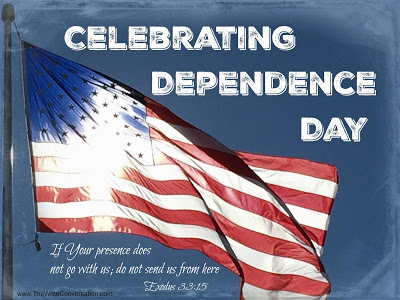 Then Moses said to (the Lord), “If your Presence does not go with us; do not send us up from here.” -Exodus 33:15, NIV
Then Moses said to (the Lord), “If your Presence does not go with us; do not send us up from here.” -Exodus 33:15, NIV
Every Christian must make a decision about his state of reliance. Do I depend upon my own authority or one outside myself?
Do I rely upon a source beyond myself for sustenance and strength, wisdom, and guidance? Will I yield my own thoughts to a greater Thinker, One whose thoughts are higher than my own?This decision will determine the course of every man’s life. Dependence is generally scorned and despised. Wars have been fought , blood spilled and lives lost to shed its bonds. The great civilizations of the world have risen to dominance through the path of independence.
But independence has not led to world peace and eternal happiness, financial and social equality, health and prosperity.
Something in the fight for freedom has been overlooked. Something is missing in our strategies.
 Freedom for every man, woman and child can come from only one place: dependence upon God. We were created for dependence that brings life, healing, wisdom and peace. Dependence upon God, present with Man, leading him, guiding him, making him free indeed.
Freedom for every man, woman and child can come from only one place: dependence upon God. We were created for dependence that brings life, healing, wisdom and peace. Dependence upon God, present with Man, leading him, guiding him, making him free indeed.
Moses understood this. When asked to go forth into a new way of life, a new land, a new vocation, he boldly dug his heels in the sand and presented God, who called him friend, an ultimatum. If your presence does not go with us, do not send us up from here. This statement sounds impertinent to the casual reader, but upon close examination we realize that Moses was desperately dependent upon God. He knew himself, and he knew the people he was asked to lead. They had not been able to free themselves. Their tendency was toward bondage. Without God’s presence with them, they would surely return to the enslavement they had known.
If I examine my life right now, can I say I have dug my heels in the sand, refusing to go forth unless the Lord’s Presence goes with me? On whom do I depend? Myself, my thoughts, logic, and plans, or have I sought His to the point of waiting stubbornly until I am sure He goes with me?
We cannot stop God’s plans for us by waiting for Him. He is pleased with our desire to go forth with Him, and He knows each of us by name. (v. 17)
Let us mark a new holiday of the heart this year. Dependence Day.
Lord, I want to depend solely upon you. If your Presence does not go with me, do not send me up from here, at this place in my life, right now. Show me Your path for my life. Amen
TWEETABLE
I'm choosing to celebrate dependence day (Ex. 33:15) @DanettaKellar (Click to Tweet)
 Danetta Kellar is a writer, blogger, and speaker. Her interesting life has taken her around the globe, where she has had the privilege to witness firsthand the transformation of women from all walks of life and culture as they exchange lies for the Truth found in Christ.
Danetta Kellar is a writer, blogger, and speaker. Her interesting life has taken her around the globe, where she has had the privilege to witness firsthand the transformation of women from all walks of life and culture as they exchange lies for the Truth found in Christ.
Her writing flows out of this rich experience and her own continual search for treasures in life’s darkness. Connect with Danetta online through her blog, Riches Out of Darkness, and on Facebook, or Twitter.
 Then Moses said to (the Lord), “If your Presence does not go with us; do not send us up from here.” -Exodus 33:15, NIV
Then Moses said to (the Lord), “If your Presence does not go with us; do not send us up from here.” -Exodus 33:15, NIVEvery Christian must make a decision about his state of reliance. Do I depend upon my own authority or one outside myself?
Do I rely upon a source beyond myself for sustenance and strength, wisdom, and guidance? Will I yield my own thoughts to a greater Thinker, One whose thoughts are higher than my own?This decision will determine the course of every man’s life. Dependence is generally scorned and despised. Wars have been fought , blood spilled and lives lost to shed its bonds. The great civilizations of the world have risen to dominance through the path of independence.
But independence has not led to world peace and eternal happiness, financial and social equality, health and prosperity.
Something in the fight for freedom has been overlooked. Something is missing in our strategies.
 Freedom for every man, woman and child can come from only one place: dependence upon God. We were created for dependence that brings life, healing, wisdom and peace. Dependence upon God, present with Man, leading him, guiding him, making him free indeed.
Freedom for every man, woman and child can come from only one place: dependence upon God. We were created for dependence that brings life, healing, wisdom and peace. Dependence upon God, present with Man, leading him, guiding him, making him free indeed.Moses understood this. When asked to go forth into a new way of life, a new land, a new vocation, he boldly dug his heels in the sand and presented God, who called him friend, an ultimatum. If your presence does not go with us, do not send us up from here. This statement sounds impertinent to the casual reader, but upon close examination we realize that Moses was desperately dependent upon God. He knew himself, and he knew the people he was asked to lead. They had not been able to free themselves. Their tendency was toward bondage. Without God’s presence with them, they would surely return to the enslavement they had known.
If I examine my life right now, can I say I have dug my heels in the sand, refusing to go forth unless the Lord’s Presence goes with me? On whom do I depend? Myself, my thoughts, logic, and plans, or have I sought His to the point of waiting stubbornly until I am sure He goes with me?
We cannot stop God’s plans for us by waiting for Him. He is pleased with our desire to go forth with Him, and He knows each of us by name. (v. 17)
Let us mark a new holiday of the heart this year. Dependence Day.
Lord, I want to depend solely upon you. If your Presence does not go with me, do not send me up from here, at this place in my life, right now. Show me Your path for my life. Amen
TWEETABLE
I'm choosing to celebrate dependence day (Ex. 33:15) @DanettaKellar (Click to Tweet)
 Danetta Kellar is a writer, blogger, and speaker. Her interesting life has taken her around the globe, where she has had the privilege to witness firsthand the transformation of women from all walks of life and culture as they exchange lies for the Truth found in Christ.
Danetta Kellar is a writer, blogger, and speaker. Her interesting life has taken her around the globe, where she has had the privilege to witness firsthand the transformation of women from all walks of life and culture as they exchange lies for the Truth found in Christ. Her writing flows out of this rich experience and her own continual search for treasures in life’s darkness. Connect with Danetta online through her blog, Riches Out of Darkness, and on Facebook, or Twitter.
Published on July 03, 2016 01:00
July 2, 2016
Inspiring Quotes for Writers
by Edie Melson @EdieMelson
Today I'd like to do something a little different. Summer is full on us, so I thought we'd celebrate the beauty of the season with a round up of memes.
I took every picture below and added the quotes through PicMonkey, so you're welcome to share them on social media. If you want to learn how to make your own: Step-by-Step Instructions for Adding Text to Images screencast is the place to begin.
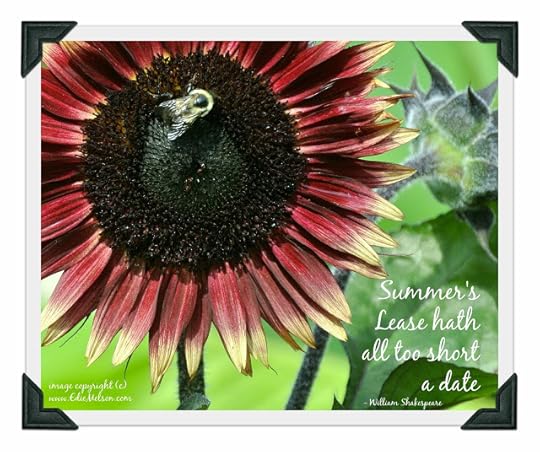 "Summer's Lease hath all too short a date." William Shakespeare
"Summer's Lease hath all too short a date." William Shakespeare
"Heaven is under our feet as well as over our heads." Henry David Thoreau
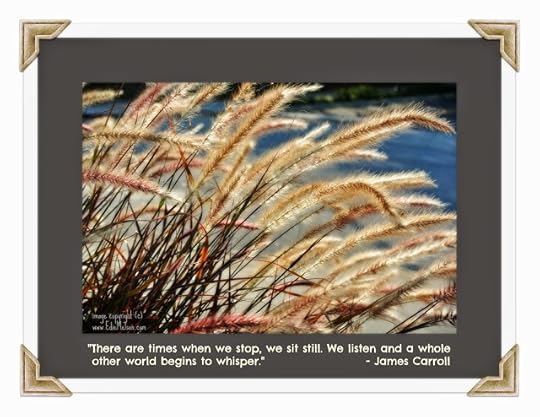 "There are times when we stop, we sit still. We listen and a whole other world begins to whisper." James Carroll
"There are times when we stop, we sit still. We listen and a whole other world begins to whisper." James Carroll
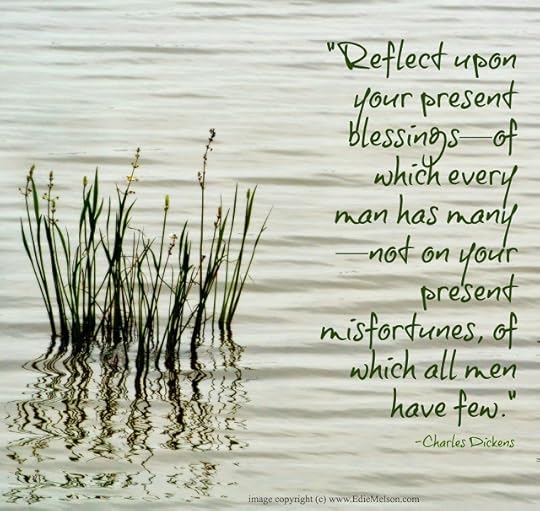 "Reflect upon your present blessings—of which every man has many—not on your present misfortunes,
"Reflect upon your present blessings—of which every man has many—not on your present misfortunes,
of which all men have few." Charles Dickens
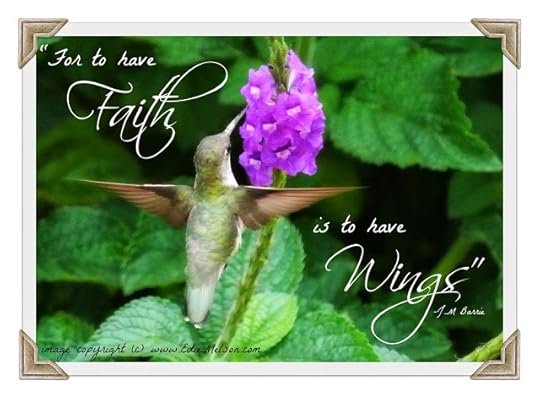 "For to have faith is to have wings." J.M. Barrie
"For to have faith is to have wings." J.M. Barrie
 "Be an opener of doors." Ralph Waldo Emerson
"Be an opener of doors." Ralph Waldo Emerson
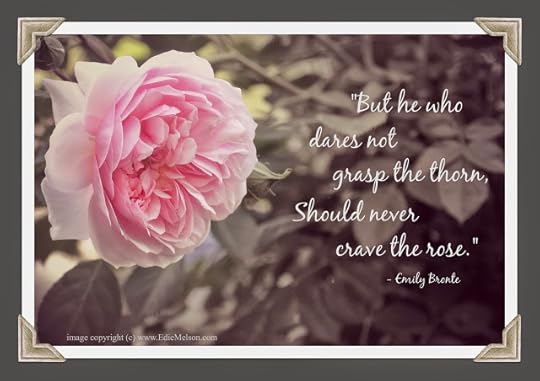 "But he who dares not grasp the thorn, should never crave the rose." Emily Bronte
"But he who dares not grasp the thorn, should never crave the rose." Emily Bronte
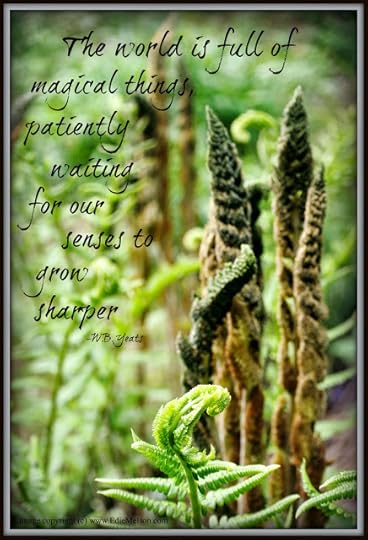 "The world is full of magical things patiently waiting
"The world is full of magical things patiently waiting
for our senses to grow sharper." W.B. Yeats
 "I like this place and could willingly waste my time in it." William Shakespeare
"I like this place and could willingly waste my time in it." William Shakespeare
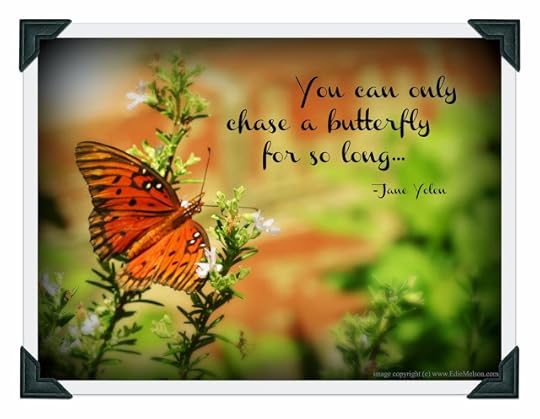 "You can only chase a butterfly for so long..." Jane Yolen
"You can only chase a butterfly for so long..." Jane Yolen
Now I'd like to know what quotes you'd add to the list. Be sure to leave your thoughts in the comments section below.
Don't forget to join the conversation!
Blessings,
Edie
TWEETABLE
Inspiring #quotes for writers - what quote would you add? @EdieMelson (Click to Tweet)
Today I'd like to do something a little different. Summer is full on us, so I thought we'd celebrate the beauty of the season with a round up of memes.
I took every picture below and added the quotes through PicMonkey, so you're welcome to share them on social media. If you want to learn how to make your own: Step-by-Step Instructions for Adding Text to Images screencast is the place to begin.
 "Summer's Lease hath all too short a date." William Shakespeare
"Summer's Lease hath all too short a date." William Shakespeare"Heaven is under our feet as well as over our heads." Henry David Thoreau
 "There are times when we stop, we sit still. We listen and a whole other world begins to whisper." James Carroll
"There are times when we stop, we sit still. We listen and a whole other world begins to whisper." James Carroll "Reflect upon your present blessings—of which every man has many—not on your present misfortunes,
"Reflect upon your present blessings—of which every man has many—not on your present misfortunes,of which all men have few." Charles Dickens
 "For to have faith is to have wings." J.M. Barrie
"For to have faith is to have wings." J.M. Barrie "Be an opener of doors." Ralph Waldo Emerson
"Be an opener of doors." Ralph Waldo Emerson "But he who dares not grasp the thorn, should never crave the rose." Emily Bronte
"But he who dares not grasp the thorn, should never crave the rose." Emily Bronte "The world is full of magical things patiently waiting
"The world is full of magical things patiently waiting for our senses to grow sharper." W.B. Yeats
 "I like this place and could willingly waste my time in it." William Shakespeare
"I like this place and could willingly waste my time in it." William Shakespeare "You can only chase a butterfly for so long..." Jane Yolen
"You can only chase a butterfly for so long..." Jane YolenNow I'd like to know what quotes you'd add to the list. Be sure to leave your thoughts in the comments section below.
Don't forget to join the conversation!
Blessings,
Edie
TWEETABLE
Inspiring #quotes for writers - what quote would you add? @EdieMelson (Click to Tweet)
Published on July 02, 2016 01:00
July 1, 2016
Abusive Language in our Writing
by Bruce Brady @BDBrady007
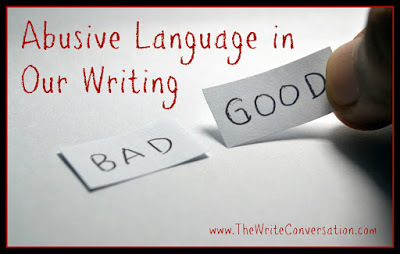 Don’t use foul or abusive language. Let everything you say be good and helpful, so that your words will be an encouragement to those who hear them (Ephesians 4:29 NLT).
Don’t use foul or abusive language. Let everything you say be good and helpful, so that your words will be an encouragement to those who hear them (Ephesians 4:29 NLT).
Last month, this verse prompted me to write a miniseries on graphic description and abusive language in Writing Against the Grain. Today, let’s discuss the popular belief that we must use foul language to sell books because, “That’s what the public wants.”
“It’s how people talk.”
Sometimes it’s better not to give the public what they want.If we hope to make the world a better place, we can’t keep doing what we’ve done in the past. We must raise our standards, and the expectations of our readers. Filling our lives and manuscripts with four-letter words is not the way to do it. Omitting forces us to become better communicators.
Could this cost us sales? Yes. But if sales are our greatest motivation, then we’re probably writing for the wrong reason. Few write well when money is their main consideration. And fewer get rich from it.
 Are we writing for fame?Are we writing for fame? Authors do have followers. Their adoration feeds our egos. And that feels good. They follow us because they love our stories or envy the carefree life they believe we live. But fame is fleeting unless we can give our devotees something substantial—something meaningful. Consistently.
Are we writing for fame?Are we writing for fame? Authors do have followers. Their adoration feeds our egos. And that feels good. They follow us because they love our stories or envy the carefree life they believe we live. But fame is fleeting unless we can give our devotees something substantial—something meaningful. Consistently.
What about conflict? A good story must have conflict. I understand the ideal world will not exist until Jesus returns. So until that happens, there will always be competition for what seems to be limited resources. There will always be selfishness. There will always be those who use fear and bullying to get what they want.
I realize that the “bad guys” use expletives and base language to express themselves and intimidate others. However, let’s remember some of the most intimidating lines in stories are delivered without profanity or rage. Here are some samples from film:
“It’s a flesh wound. But if you don’t get me what I need, the last thing you’ll see before I make your children orphans is the bullet I put between her eyes.” (Spoken by Liam Neeson as Bryan Mills, after shooting Jean Claude’s wife in the arm — Taken)“There are two types of people in the world – those with a gun, and those who dig. Now dig!” (Clint Eastwood as Blondie— The Good, the Bad, and the Ugly)“I know what you’re thinking. Did he fire six shots or only five? Well, to tell you the truth, in all this excitement I kind of lost track myself. But being as this is a .44 Magnum, the most powerful handgun in the world, and would blow your head clean off, you’ve got to ask yourself a question: Do I feel lucky? Well, do ya punk?” (Clint Eastwood as Dirty Harry — Dirty Harry)“I’ll make him an offer he can’t refuse.” (Marlon Brando as Don Vito Corleone — The Godfather)“None of you seem to understand. I’m not locked up in here with you. You’re locked up in here with me.” (Jackie Earle Haley as Rorschach — Watchmen)“Forgiveness is between them and God. It’s my job to arrange the meeting.” (Denzel Washington as John W. Creasy — Man on Fire
 We can find words that work without
We can find words that work without
the use of obscene language.These lines were very effective as intimidation tools and they don’t include vulgarity. There are many more examples of inducing fear without the use of obscene language.
Some of the most intimidating words I’ve heard in a movie came from Hannibal Lecter in Silence of the Lambs. Hannibal was an imprisoned, cannibalistic serial killer. The following lines were delivered by Sir Anthony Hopkins as Hannibal Lecter in a calm, soft voice when talking to FBI agent Clarice Starling.
“A census taker once tried to test me. I ate his liver with some fava beans and a nice chianti.”“I do wish we could chat longer, but... I'm having an old friend for dinner. Bye.” (Ending a phone conversation)“Yes or no, Clarice? Poor little Catherine is waiting.” (Catherine Martin is the kidnapped daughter of U.S. Senator Ruth )And if these aren’t chilling enough for you, how about what he said in conversation with Senator Martin:
“Amputate a man's leg and he can still feel it tickling. Tell me, Mum, when your little girl is on the slab, where will it tickle you?”Everyone I know who’s seen Silence of the Lambs agrees this story is horrifying. The main reason being the soft-spoken forensic psychiatrist who enjoyed killing and eating people.
When I first submitted myself to God, I was a young man who cussed like a sailor. I expressed myself through profanity because I had no interest learning a less-offensive way to relate my feelings. So I know desire for graphic violence, explicit sex, and foul language comes from self-centered motives. I also know that when I do use these lazy tricks, it’s because I write or speak before I think.
I want to please the Lord in all I do, so I accept—and even invite—the chastisement of the Holy Spirit. I need to be reminded to think before I act; to consider the effect my words may have on others.
As responsible writers, let’s hold each other accountable for the words we use. Let’s emphasize positive ways to expresses our feelings. Let’s remember that whatever we write, it could be seen by children.
Let’s strive to ensure that everything we write is “good and helpful,” so that our words “will be an encouragement to those who” read them.
As my friends, I ask you to hold me accountable for the words I use on this site, and any other media through which I communicate. I’d rather you hurt my feelings than allow me to produce less than my best.
What are your thoughts? Let’s keep the conversation going through comments.
TWEETABLES
Abusive language in our #writing - @BDBrady007 on @EdieMelson (Click to Tweet)
Abusive language: often it's better not to give the public what it wants. @BDBracy007 (Click to Tweet)
 Bruce Brady is an author, writer and playwright. His work has appeared in Focus on the Family’s Thriving Family, www.ChristianDevotions.us, and on stage. Currently, Bruce is working on a Young Adult Novel about a boy who must deal with the death of his dad, being bullied, and helping his mom through her grief. His first five pages took third place in the ACFW South Carolina Chapter’s “First Five Pages” contest.
Bruce Brady is an author, writer and playwright. His work has appeared in Focus on the Family’s Thriving Family, www.ChristianDevotions.us, and on stage. Currently, Bruce is working on a Young Adult Novel about a boy who must deal with the death of his dad, being bullied, and helping his mom through her grief. His first five pages took third place in the ACFW South Carolina Chapter’s “First Five Pages” contest.
When he’s not writing, Bruce spends time learning from and helping other writers. He serves as Mentor of Word Weavers International’s Online Chapter, and as a member of Cross ‘N’ Pens, The Writer’s Plot, ACFW’s National and South Carolina Chapters.
“My dream is to entertain my readers and give them hope as they travel the rocky road of life.”
 Don’t use foul or abusive language. Let everything you say be good and helpful, so that your words will be an encouragement to those who hear them (Ephesians 4:29 NLT).
Don’t use foul or abusive language. Let everything you say be good and helpful, so that your words will be an encouragement to those who hear them (Ephesians 4:29 NLT).Last month, this verse prompted me to write a miniseries on graphic description and abusive language in Writing Against the Grain. Today, let’s discuss the popular belief that we must use foul language to sell books because, “That’s what the public wants.”
“It’s how people talk.”
Sometimes it’s better not to give the public what they want.If we hope to make the world a better place, we can’t keep doing what we’ve done in the past. We must raise our standards, and the expectations of our readers. Filling our lives and manuscripts with four-letter words is not the way to do it. Omitting forces us to become better communicators.
Could this cost us sales? Yes. But if sales are our greatest motivation, then we’re probably writing for the wrong reason. Few write well when money is their main consideration. And fewer get rich from it.
 Are we writing for fame?Are we writing for fame? Authors do have followers. Their adoration feeds our egos. And that feels good. They follow us because they love our stories or envy the carefree life they believe we live. But fame is fleeting unless we can give our devotees something substantial—something meaningful. Consistently.
Are we writing for fame?Are we writing for fame? Authors do have followers. Their adoration feeds our egos. And that feels good. They follow us because they love our stories or envy the carefree life they believe we live. But fame is fleeting unless we can give our devotees something substantial—something meaningful. Consistently.What about conflict? A good story must have conflict. I understand the ideal world will not exist until Jesus returns. So until that happens, there will always be competition for what seems to be limited resources. There will always be selfishness. There will always be those who use fear and bullying to get what they want.
I realize that the “bad guys” use expletives and base language to express themselves and intimidate others. However, let’s remember some of the most intimidating lines in stories are delivered without profanity or rage. Here are some samples from film:
“It’s a flesh wound. But if you don’t get me what I need, the last thing you’ll see before I make your children orphans is the bullet I put between her eyes.” (Spoken by Liam Neeson as Bryan Mills, after shooting Jean Claude’s wife in the arm — Taken)“There are two types of people in the world – those with a gun, and those who dig. Now dig!” (Clint Eastwood as Blondie— The Good, the Bad, and the Ugly)“I know what you’re thinking. Did he fire six shots or only five? Well, to tell you the truth, in all this excitement I kind of lost track myself. But being as this is a .44 Magnum, the most powerful handgun in the world, and would blow your head clean off, you’ve got to ask yourself a question: Do I feel lucky? Well, do ya punk?” (Clint Eastwood as Dirty Harry — Dirty Harry)“I’ll make him an offer he can’t refuse.” (Marlon Brando as Don Vito Corleone — The Godfather)“None of you seem to understand. I’m not locked up in here with you. You’re locked up in here with me.” (Jackie Earle Haley as Rorschach — Watchmen)“Forgiveness is between them and God. It’s my job to arrange the meeting.” (Denzel Washington as John W. Creasy — Man on Fire
 We can find words that work without
We can find words that work withoutthe use of obscene language.These lines were very effective as intimidation tools and they don’t include vulgarity. There are many more examples of inducing fear without the use of obscene language.
Some of the most intimidating words I’ve heard in a movie came from Hannibal Lecter in Silence of the Lambs. Hannibal was an imprisoned, cannibalistic serial killer. The following lines were delivered by Sir Anthony Hopkins as Hannibal Lecter in a calm, soft voice when talking to FBI agent Clarice Starling.
“A census taker once tried to test me. I ate his liver with some fava beans and a nice chianti.”“I do wish we could chat longer, but... I'm having an old friend for dinner. Bye.” (Ending a phone conversation)“Yes or no, Clarice? Poor little Catherine is waiting.” (Catherine Martin is the kidnapped daughter of U.S. Senator Ruth )And if these aren’t chilling enough for you, how about what he said in conversation with Senator Martin:
“Amputate a man's leg and he can still feel it tickling. Tell me, Mum, when your little girl is on the slab, where will it tickle you?”Everyone I know who’s seen Silence of the Lambs agrees this story is horrifying. The main reason being the soft-spoken forensic psychiatrist who enjoyed killing and eating people.
When I first submitted myself to God, I was a young man who cussed like a sailor. I expressed myself through profanity because I had no interest learning a less-offensive way to relate my feelings. So I know desire for graphic violence, explicit sex, and foul language comes from self-centered motives. I also know that when I do use these lazy tricks, it’s because I write or speak before I think.
I want to please the Lord in all I do, so I accept—and even invite—the chastisement of the Holy Spirit. I need to be reminded to think before I act; to consider the effect my words may have on others.
As responsible writers, let’s hold each other accountable for the words we use. Let’s emphasize positive ways to expresses our feelings. Let’s remember that whatever we write, it could be seen by children.
Let’s strive to ensure that everything we write is “good and helpful,” so that our words “will be an encouragement to those who” read them.
As my friends, I ask you to hold me accountable for the words I use on this site, and any other media through which I communicate. I’d rather you hurt my feelings than allow me to produce less than my best.
What are your thoughts? Let’s keep the conversation going through comments.
TWEETABLES
Abusive language in our #writing - @BDBrady007 on @EdieMelson (Click to Tweet)
Abusive language: often it's better not to give the public what it wants. @BDBracy007 (Click to Tweet)
 Bruce Brady is an author, writer and playwright. His work has appeared in Focus on the Family’s Thriving Family, www.ChristianDevotions.us, and on stage. Currently, Bruce is working on a Young Adult Novel about a boy who must deal with the death of his dad, being bullied, and helping his mom through her grief. His first five pages took third place in the ACFW South Carolina Chapter’s “First Five Pages” contest.
Bruce Brady is an author, writer and playwright. His work has appeared in Focus on the Family’s Thriving Family, www.ChristianDevotions.us, and on stage. Currently, Bruce is working on a Young Adult Novel about a boy who must deal with the death of his dad, being bullied, and helping his mom through her grief. His first five pages took third place in the ACFW South Carolina Chapter’s “First Five Pages” contest.When he’s not writing, Bruce spends time learning from and helping other writers. He serves as Mentor of Word Weavers International’s Online Chapter, and as a member of Cross ‘N’ Pens, The Writer’s Plot, ACFW’s National and South Carolina Chapters.
“My dream is to entertain my readers and give them hope as they travel the rocky road of life.”
Published on July 01, 2016 01:00
June 30, 2016
Why Write?
Edie here. Today I'm very excited to have the author of the new book,
Damn Shame
, with us today. Curtis H. Tucker has the pulse on the church community (and those beyond) when it comes to our struggle with shame. He's also got a lot to share in regard to the writer's life, so I'm hoping you enjoy getting to meet him.
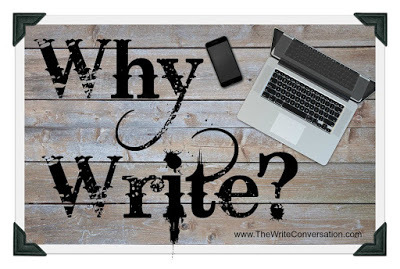 Why write?Why Write?by Curtis H Tucker @MavMinister
Why write?Why Write?by Curtis H Tucker @MavMinister
Write a blog for a blog about writing. I’m sure I'm not the first person to be caught by the paradoxical nature of this idea: write about writing. This could go any number of directions. But for me: To write or not write, that is the question.
I don’t write to meet expectations or deadlines (except in this case of writing about writing). Maybe it's just me, but deadlines and expectations don’t help me. I don’t like to write when I have to write. I don’t write when I lack an inspiring idea or thought . . . sometimes those moments of inspiration are very distant from each other. I don’t write unless I have something new—this sounds naïve since, there is nothing new under the sun—or something old that could stand to be said in a new way to enhance understanding. I don’t write to get rich. I'm sure some do it for a career and actually make money, but that is not why I write.
Why I write . . .
 Primarily I write because it can help others.I write because it helps me. It's easy to think aboutthings yet harder to think through things to a conclusion. Writing helps me see my thoughts objectively and think things through to conclusions. Working my thoughts together in words that will make sense of my conclusions for other people also helps me in that process.
Primarily I write because it can help others.I write because it helps me. It's easy to think aboutthings yet harder to think through things to a conclusion. Writing helps me see my thoughts objectively and think things through to conclusions. Working my thoughts together in words that will make sense of my conclusions for other people also helps me in that process.
But primarily I write because it can help others.
What I write becomes something for others to take into their minds in the quietness of their own world without the pressure of verbal dialogue, time constraints, schedules, fears, etc. A reader can quietly consider and contemplate, read and reread as deeply and as often as they like. Words can be thoughtfully considered, prayerfully pondered, mulled over in our minds, or treasured in our hearts without any pressure from the outside world.
The reader can choose where they connect, how deeply they will engage, and how genuinely and authentically they will soak in the content and meaning. And words help because the written word has a constant and lasting nature that makes it powerful and effective. I think that's why Peter wrote; “ . . . we have the prophetic word more sure” which he was contrasting with his experience of Jesus’ transfiguration. I like it, and agree with Peter, words are more definite than personal experience. Words we read on a page originate from somewhere/someone else than our own mind or experience.
We can take those words in over and over again to interpret, ponder, and consider. The words are objective—unlike personal experiences—and are there in print. They cannot be rationalized off the page and they don’t go away. It's a conversation between author and reader that can take place anywhere and anytime. If you don’t like the words you can stop reading, skip a page, get something to eat or drink and return again, or you can throw the book away, but there is always another copy somewhere for someone to pick up and consider.
Words cannot be excused.
TWEETABLESWhy write? Thoughts on an author's drive to put words on paper - @MavMinister (Click to Tweet)
"The written word has a constant & lasting nature that makes it powerful & effective." @MavMinister (Click to Tweet)
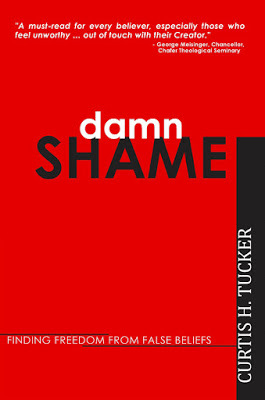 Damn Shameby Curtis H TuckerDoes God hate most people and only love a select few?
Damn Shameby Curtis H TuckerDoes God hate most people and only love a select few?
Is every human being born so corrupt that they awaken to this world with a sentence of eternal damnation hanging over their head? Many are gasping for air, suffocating in shame, and trapped under the weight of an erroneous belief system. Words carry the power of life and death. They produce shame – the feeling that we aren’t worthy of the air we breathe or the ground beneath our feet.
Where does shame come from? Damn Shame speaks candidly about false beliefs and unbiblical theologies, peeling back the layers of these erroneous teachings and inviting us to shift our understanding so we can begin to live as our Father really intends. If you’re tired of living a life filled with shame, this book is for you.
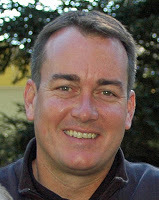 Curtis H. Tucker is a So-Cal boy who grew up surfing the breaks of Newport Beach. Now, as pastor of a small, vibrant community church in Central Oregon, his lack of Christian upbringing has served him well in a pursuit of God and His truth.
Curtis H. Tucker is a So-Cal boy who grew up surfing the breaks of Newport Beach. Now, as pastor of a small, vibrant community church in Central Oregon, his lack of Christian upbringing has served him well in a pursuit of God and His truth.
Curtis has a passion to teach that truth to others so they can experience the freedom that comes from walking with God. He has two sons, Carson and Cooper. Connect with Curtis on Twitter, and through http://www.curtishtucker.com/ and http://maverick-ministers.com/
 Why write?Why Write?by Curtis H Tucker @MavMinister
Why write?Why Write?by Curtis H Tucker @MavMinister Write a blog for a blog about writing. I’m sure I'm not the first person to be caught by the paradoxical nature of this idea: write about writing. This could go any number of directions. But for me: To write or not write, that is the question.
I don’t write to meet expectations or deadlines (except in this case of writing about writing). Maybe it's just me, but deadlines and expectations don’t help me. I don’t like to write when I have to write. I don’t write when I lack an inspiring idea or thought . . . sometimes those moments of inspiration are very distant from each other. I don’t write unless I have something new—this sounds naïve since, there is nothing new under the sun—or something old that could stand to be said in a new way to enhance understanding. I don’t write to get rich. I'm sure some do it for a career and actually make money, but that is not why I write.
Why I write . . .
 Primarily I write because it can help others.I write because it helps me. It's easy to think aboutthings yet harder to think through things to a conclusion. Writing helps me see my thoughts objectively and think things through to conclusions. Working my thoughts together in words that will make sense of my conclusions for other people also helps me in that process.
Primarily I write because it can help others.I write because it helps me. It's easy to think aboutthings yet harder to think through things to a conclusion. Writing helps me see my thoughts objectively and think things through to conclusions. Working my thoughts together in words that will make sense of my conclusions for other people also helps me in that process. But primarily I write because it can help others.
What I write becomes something for others to take into their minds in the quietness of their own world without the pressure of verbal dialogue, time constraints, schedules, fears, etc. A reader can quietly consider and contemplate, read and reread as deeply and as often as they like. Words can be thoughtfully considered, prayerfully pondered, mulled over in our minds, or treasured in our hearts without any pressure from the outside world.
The reader can choose where they connect, how deeply they will engage, and how genuinely and authentically they will soak in the content and meaning. And words help because the written word has a constant and lasting nature that makes it powerful and effective. I think that's why Peter wrote; “ . . . we have the prophetic word more sure” which he was contrasting with his experience of Jesus’ transfiguration. I like it, and agree with Peter, words are more definite than personal experience. Words we read on a page originate from somewhere/someone else than our own mind or experience.
We can take those words in over and over again to interpret, ponder, and consider. The words are objective—unlike personal experiences—and are there in print. They cannot be rationalized off the page and they don’t go away. It's a conversation between author and reader that can take place anywhere and anytime. If you don’t like the words you can stop reading, skip a page, get something to eat or drink and return again, or you can throw the book away, but there is always another copy somewhere for someone to pick up and consider.
Words cannot be excused.
TWEETABLESWhy write? Thoughts on an author's drive to put words on paper - @MavMinister (Click to Tweet)
"The written word has a constant & lasting nature that makes it powerful & effective." @MavMinister (Click to Tweet)
 Damn Shameby Curtis H TuckerDoes God hate most people and only love a select few?
Damn Shameby Curtis H TuckerDoes God hate most people and only love a select few?Is every human being born so corrupt that they awaken to this world with a sentence of eternal damnation hanging over their head? Many are gasping for air, suffocating in shame, and trapped under the weight of an erroneous belief system. Words carry the power of life and death. They produce shame – the feeling that we aren’t worthy of the air we breathe or the ground beneath our feet.
Where does shame come from? Damn Shame speaks candidly about false beliefs and unbiblical theologies, peeling back the layers of these erroneous teachings and inviting us to shift our understanding so we can begin to live as our Father really intends. If you’re tired of living a life filled with shame, this book is for you.
 Curtis H. Tucker is a So-Cal boy who grew up surfing the breaks of Newport Beach. Now, as pastor of a small, vibrant community church in Central Oregon, his lack of Christian upbringing has served him well in a pursuit of God and His truth.
Curtis H. Tucker is a So-Cal boy who grew up surfing the breaks of Newport Beach. Now, as pastor of a small, vibrant community church in Central Oregon, his lack of Christian upbringing has served him well in a pursuit of God and His truth.
Curtis has a passion to teach that truth to others so they can experience the freedom that comes from walking with God. He has two sons, Carson and Cooper. Connect with Curtis on Twitter, and through http://www.curtishtucker.com/ and http://maverick-ministers.com/
Published on June 30, 2016 01:00
June 29, 2016
Are You Taking Care of Yourself as a Writer?
by Edie Melson @EdieMelson
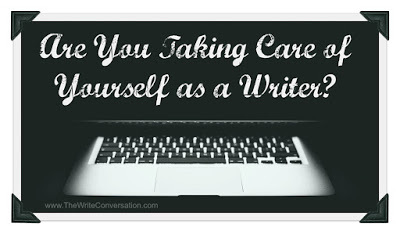 Writing is hard work.
Writing is hard work.
Beyond the physical part, it’s emotionally taxing. We pour our hearts and souls into the words we arrange into stories, articles, even blog posts. We spend time and money learning how to write, constantly improving our skills.
Then, we take a deep breath and share our words with the world. So often that world can be less than kind. To face the tumultuous life of writing, we have to take time to nourish the writer within.
Today I want to share some tips you can use—even if life is crazy—to feed your writer’s soul.
2. Set goals, some small, some large. The variety keeps it interesting— and doable!
 Reward yourself when you meet a goal.3. Reward yourself when you meet a goal. Goals give you something to shoot for and something to celebrate. It could be something as easy as 5 M&Ms when you write 500 words. But take time to give yourself positive feedback.
Reward yourself when you meet a goal.3. Reward yourself when you meet a goal. Goals give you something to shoot for and something to celebrate. It could be something as easy as 5 M&Ms when you write 500 words. But take time to give yourself positive feedback.
4. Surround yourself with cheerleaders. Enlist your family and friends in your dream. Share your struggles, share your goals, share your success. You’ll be richer in the end.
 Take time to be a vegetable.5. Take time to be a vegetable. For me, that’s mindless TV. I love Survivor, Castle and Big Bang Theory. For you, it may be time to thumb through a magazine or have a cup of coffee.
Take time to be a vegetable.5. Take time to be a vegetable. For me, that’s mindless TV. I love Survivor, Castle and Big Bang Theory. For you, it may be time to thumb through a magazine or have a cup of coffee.
6. And on that note…eat right. I know, it’s become a cliché. But things are clichés for a reason—they’re usually true. Make sure your diet is well balanced. None of us can exist for days on end with nothing but junk food.
7. Don’t forget to exercise. I hate it like the plague (talk about a cliché). But I ALWAYS feel better when I take time for it. No only do I feel better physically, but I’m sharper mentally.
 Join a writing community.8. Join a writing community. Or if you already have one, take an active part in it.
Join a writing community.8. Join a writing community. Or if you already have one, take an active part in it.
9. Give yourself permission to write junk. Sometimes I just have to write bad before I can write good. Knowing it’s going to happen makes it more palatable.
10. Don’t neglect your spiritual life. None of us would be here without God. Make Him your priority and He’ll handle the rest.
These are my ten tips. What would you add to the list?
Don’t forget to join the conversation!Blessings,
Edie
TWEETABLES
Are you taking care of yourself as a writer? Tips from @EdieMelson (Click to Tweet)
10 Tips to keep a writer healthy inside & out - @EdieMelson (Click to Tweet)
 Writing is hard work.
Writing is hard work.Beyond the physical part, it’s emotionally taxing. We pour our hearts and souls into the words we arrange into stories, articles, even blog posts. We spend time and money learning how to write, constantly improving our skills.
Then, we take a deep breath and share our words with the world. So often that world can be less than kind. To face the tumultuous life of writing, we have to take time to nourish the writer within.
Today I want to share some tips you can use—even if life is crazy—to feed your writer’s soul.
2. Set goals, some small, some large. The variety keeps it interesting— and doable!
 Reward yourself when you meet a goal.3. Reward yourself when you meet a goal. Goals give you something to shoot for and something to celebrate. It could be something as easy as 5 M&Ms when you write 500 words. But take time to give yourself positive feedback.
Reward yourself when you meet a goal.3. Reward yourself when you meet a goal. Goals give you something to shoot for and something to celebrate. It could be something as easy as 5 M&Ms when you write 500 words. But take time to give yourself positive feedback.4. Surround yourself with cheerleaders. Enlist your family and friends in your dream. Share your struggles, share your goals, share your success. You’ll be richer in the end.
 Take time to be a vegetable.5. Take time to be a vegetable. For me, that’s mindless TV. I love Survivor, Castle and Big Bang Theory. For you, it may be time to thumb through a magazine or have a cup of coffee.
Take time to be a vegetable.5. Take time to be a vegetable. For me, that’s mindless TV. I love Survivor, Castle and Big Bang Theory. For you, it may be time to thumb through a magazine or have a cup of coffee. 6. And on that note…eat right. I know, it’s become a cliché. But things are clichés for a reason—they’re usually true. Make sure your diet is well balanced. None of us can exist for days on end with nothing but junk food.
7. Don’t forget to exercise. I hate it like the plague (talk about a cliché). But I ALWAYS feel better when I take time for it. No only do I feel better physically, but I’m sharper mentally.
 Join a writing community.8. Join a writing community. Or if you already have one, take an active part in it.
Join a writing community.8. Join a writing community. Or if you already have one, take an active part in it. 9. Give yourself permission to write junk. Sometimes I just have to write bad before I can write good. Knowing it’s going to happen makes it more palatable.
10. Don’t neglect your spiritual life. None of us would be here without God. Make Him your priority and He’ll handle the rest.
These are my ten tips. What would you add to the list?
Don’t forget to join the conversation!Blessings,
Edie
TWEETABLES
Are you taking care of yourself as a writer? Tips from @EdieMelson (Click to Tweet)
10 Tips to keep a writer healthy inside & out - @EdieMelson (Click to Tweet)
Published on June 29, 2016 01:00
June 28, 2016
When Writers Should Just Be Quiet
by Eva Marie Everson @EvaMarieEverson
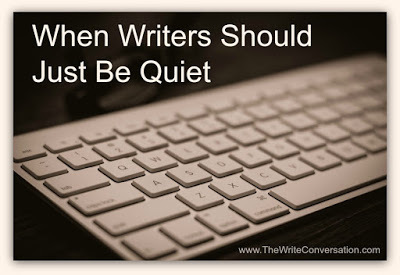 I live in the Orlando area.
I live in the Orlando area.
A week or so ago, we endured the most awful few days I can remember in a long time. Sure, in 2004 we were hit by three of the four major hurricanes that nearly beat our state to death. We lived without water. Without electricity. And we did so in hot and humid conditions.
But this … these events—the murder of Christine Grimmie, the mass shooting at Pulse Nightclub, the alligator attack and subsequent death of little Lane Graves while vacationing at Disney with his family—took us by surprise. There were no warnings. No one on The Weather Channel told us to baton down the hatches.
As a writer, I immediately wanted to take to social media to express my grief. My anger. My confusion. But, there are times when writers just need to hush. There is a time for everything, King Solomon (or so we believe) wrote in the book we call Ecclesiastes. And this is so.
Writers, especially Christian writers (I believe), must have all the facts before spouting off. They also must allow the Holy Spirit to settle the issues and emotions within them. The hurt. The hate. The anger. The confusion. They should—they must—allow their heart to beat in rhythm again. Rhythm with Him, above all else.
So, I waited. At the end of the week, when I believed I may have put all the pieces into place, I wrote on my Facebook page:
 I just sent a txt to a friend that I think sums up this week in Orlando. First Christina Grimmie. Then the mass shootings at Pulse. Then the sweet child dying at Disney.
I just sent a txt to a friend that I think sums up this week in Orlando. First Christina Grimmie. Then the mass shootings at Pulse. Then the sweet child dying at Disney.
The air has gone out of Orlando, I told her. It's palatable. It's what we are talking about, everywhere we go. It's painful and, sadly, it's real.
And we can all argue our points. Yes I believe if you are on a no fly you should be on a no buy. Yes I worry about any radical religion. And yes I believe in MY right to own any gun I want to and to take it out to my property and shoot the heck out of it if I want to. When I want to. If I want to.
And I believe in my right to defend myself or my loved ones if it ever came to that.
But I don't believe in murder. I DO believe we need to address the REAL issue, which is radical religion married to mental illness, which no one really wants to talk about.
I've never known a single gun that woke up one day and said "let's go kill someone." I also don't know a car that says it or a plane that says it or a knife that says it. Yet even after all the car accidents and plane crashes and knifings we keep getting in our cars and boarding those planes and buying butcher knives for our kitchens without blaming the cars, planes, and knives. No one calling for a ban, even when someone uses them purposefully to kill.
Since Tuesday I'm also more cautious when I walk my dog along the path of the pond in my back yard. Because it is the season for mating. And aggression.
And I don't just mean gators.
And that's just the way it is.
No air. No air.
The result was phenomenal. Lots of shares. Lots of positive comments. None negative. Not a single one. I think this is because I waited until I had my emotions in check but had not lost all feeling entirely.
Years ago, after a traumatic event in my personal life, I attempted to create a book from the heartache. When I presented to editors—all who had known me for years—they were shocked by the venom in my words. Of course they rejected my work, and I walked away, shaking my head at their insensitivity.
Years later, I understand why they said “no.” I needed to get my feelings in check before I could write fair and balanced about the events as they’d truly transpired.
This morning I watched a “Newsy” report on whether or not it’s right to call the Orlando shooting the largest massacre in our history, seeing as we have events such as Wounded Knee to add to the mix.
This news report was so fair, so balanced, I had to share it on social media. Then I read an article in The Orlando Sentinel from my writing buddy, Dan Beckmann. Dan spent years behind a camera for NBC News, so he’s seen his fair share of tragedies. But, like me, Dan waited to respond to the Orlando mass shooting. I found his words both gripping and tremendously well said. (Well said, Danny! Well said!)
Writers, when they experience pain, often want to write out of that hurt. But sometimes—most times—waiting for the right “season” as King Solomon so aptly put it, is the best first step in expressing your true feelings. Especially if you wish to be taken seriously as a writer.
TWEETABLESWhen writers should just be quiet - @EvaMarieEverson (Click to Tweet)
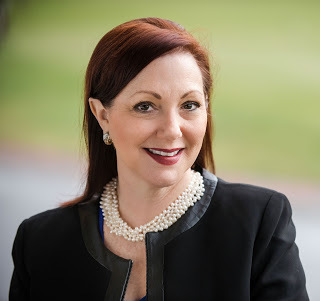 Eva Marie is a multiple award-winning author and speaker. She is one of the original five Orlando Word Weavers critique group members, an international and national group made up of critique chapters. She served as the original president from 2000 to 2007 and is now president of Word Weavers International, Inc. Eva Marie served as a mentor for Jerry B. Jenkins Christian Writers Guild for several years and has taught at a number of writers conferences nationwide. During the 2010-2011 school year, Eva Marie served as an adjunct professor at Taylor University in Upland, Indiana. She describes it as one of the best times she ever had while working. Eva Marie also serves as director of Florida Christian Writers Conference (along with Mark Hancock) and the Education Consultant for SON Studios.
Eva Marie is a multiple award-winning author and speaker. She is one of the original five Orlando Word Weavers critique group members, an international and national group made up of critique chapters. She served as the original president from 2000 to 2007 and is now president of Word Weavers International, Inc. Eva Marie served as a mentor for Jerry B. Jenkins Christian Writers Guild for several years and has taught at a number of writers conferences nationwide. During the 2010-2011 school year, Eva Marie served as an adjunct professor at Taylor University in Upland, Indiana. She describes it as one of the best times she ever had while working. Eva Marie also serves as director of Florida Christian Writers Conference (along with Mark Hancock) and the Education Consultant for SON Studios.
She is both a past and current student at Andersonville Theological Seminary where she plans to receive her Masters in Old Testament Theology sometime before her ninetieth birthday. Eva Marie and her husband make their home in Central Florida where they are owned by one very spoiled dog, a funky chicken, and two hearts-full of grandchildren.
*Carol Award Winner for The Potluck Club**ICRS Gold Medallion Finalist***Multiple awards, including 2012 Inspirational Readers Choice Award & Maggie Award (Chasing Sunsets), 2013 Maggie Award & 2013 Christy finalist for Waiting for Sunrise, 2014 AWSA Golden Scroll Award (Slow Moon Rising), 2015 AWSA Golden Scroll Award (The Road to Testament)
****CBA Bestseller List several months running and a finalist for Retailers Choice Awards, 2013
 I live in the Orlando area.
I live in the Orlando area.A week or so ago, we endured the most awful few days I can remember in a long time. Sure, in 2004 we were hit by three of the four major hurricanes that nearly beat our state to death. We lived without water. Without electricity. And we did so in hot and humid conditions.
But this … these events—the murder of Christine Grimmie, the mass shooting at Pulse Nightclub, the alligator attack and subsequent death of little Lane Graves while vacationing at Disney with his family—took us by surprise. There were no warnings. No one on The Weather Channel told us to baton down the hatches.
As a writer, I immediately wanted to take to social media to express my grief. My anger. My confusion. But, there are times when writers just need to hush. There is a time for everything, King Solomon (or so we believe) wrote in the book we call Ecclesiastes. And this is so.
Writers, especially Christian writers (I believe), must have all the facts before spouting off. They also must allow the Holy Spirit to settle the issues and emotions within them. The hurt. The hate. The anger. The confusion. They should—they must—allow their heart to beat in rhythm again. Rhythm with Him, above all else.
So, I waited. At the end of the week, when I believed I may have put all the pieces into place, I wrote on my Facebook page:
 I just sent a txt to a friend that I think sums up this week in Orlando. First Christina Grimmie. Then the mass shootings at Pulse. Then the sweet child dying at Disney.
I just sent a txt to a friend that I think sums up this week in Orlando. First Christina Grimmie. Then the mass shootings at Pulse. Then the sweet child dying at Disney.The air has gone out of Orlando, I told her. It's palatable. It's what we are talking about, everywhere we go. It's painful and, sadly, it's real.
And we can all argue our points. Yes I believe if you are on a no fly you should be on a no buy. Yes I worry about any radical religion. And yes I believe in MY right to own any gun I want to and to take it out to my property and shoot the heck out of it if I want to. When I want to. If I want to.
And I believe in my right to defend myself or my loved ones if it ever came to that.
But I don't believe in murder. I DO believe we need to address the REAL issue, which is radical religion married to mental illness, which no one really wants to talk about.
I've never known a single gun that woke up one day and said "let's go kill someone." I also don't know a car that says it or a plane that says it or a knife that says it. Yet even after all the car accidents and plane crashes and knifings we keep getting in our cars and boarding those planes and buying butcher knives for our kitchens without blaming the cars, planes, and knives. No one calling for a ban, even when someone uses them purposefully to kill.
Since Tuesday I'm also more cautious when I walk my dog along the path of the pond in my back yard. Because it is the season for mating. And aggression.
And I don't just mean gators.
And that's just the way it is.
No air. No air.
The result was phenomenal. Lots of shares. Lots of positive comments. None negative. Not a single one. I think this is because I waited until I had my emotions in check but had not lost all feeling entirely.
Years ago, after a traumatic event in my personal life, I attempted to create a book from the heartache. When I presented to editors—all who had known me for years—they were shocked by the venom in my words. Of course they rejected my work, and I walked away, shaking my head at their insensitivity.
Years later, I understand why they said “no.” I needed to get my feelings in check before I could write fair and balanced about the events as they’d truly transpired.
This morning I watched a “Newsy” report on whether or not it’s right to call the Orlando shooting the largest massacre in our history, seeing as we have events such as Wounded Knee to add to the mix.
This news report was so fair, so balanced, I had to share it on social media. Then I read an article in The Orlando Sentinel from my writing buddy, Dan Beckmann. Dan spent years behind a camera for NBC News, so he’s seen his fair share of tragedies. But, like me, Dan waited to respond to the Orlando mass shooting. I found his words both gripping and tremendously well said. (Well said, Danny! Well said!)
Writers, when they experience pain, often want to write out of that hurt. But sometimes—most times—waiting for the right “season” as King Solomon so aptly put it, is the best first step in expressing your true feelings. Especially if you wish to be taken seriously as a writer.
TWEETABLESWhen writers should just be quiet - @EvaMarieEverson (Click to Tweet)
 Eva Marie is a multiple award-winning author and speaker. She is one of the original five Orlando Word Weavers critique group members, an international and national group made up of critique chapters. She served as the original president from 2000 to 2007 and is now president of Word Weavers International, Inc. Eva Marie served as a mentor for Jerry B. Jenkins Christian Writers Guild for several years and has taught at a number of writers conferences nationwide. During the 2010-2011 school year, Eva Marie served as an adjunct professor at Taylor University in Upland, Indiana. She describes it as one of the best times she ever had while working. Eva Marie also serves as director of Florida Christian Writers Conference (along with Mark Hancock) and the Education Consultant for SON Studios.
Eva Marie is a multiple award-winning author and speaker. She is one of the original five Orlando Word Weavers critique group members, an international and national group made up of critique chapters. She served as the original president from 2000 to 2007 and is now president of Word Weavers International, Inc. Eva Marie served as a mentor for Jerry B. Jenkins Christian Writers Guild for several years and has taught at a number of writers conferences nationwide. During the 2010-2011 school year, Eva Marie served as an adjunct professor at Taylor University in Upland, Indiana. She describes it as one of the best times she ever had while working. Eva Marie also serves as director of Florida Christian Writers Conference (along with Mark Hancock) and the Education Consultant for SON Studios.She is both a past and current student at Andersonville Theological Seminary where she plans to receive her Masters in Old Testament Theology sometime before her ninetieth birthday. Eva Marie and her husband make their home in Central Florida where they are owned by one very spoiled dog, a funky chicken, and two hearts-full of grandchildren.
*Carol Award Winner for The Potluck Club**ICRS Gold Medallion Finalist***Multiple awards, including 2012 Inspirational Readers Choice Award & Maggie Award (Chasing Sunsets), 2013 Maggie Award & 2013 Christy finalist for Waiting for Sunrise, 2014 AWSA Golden Scroll Award (Slow Moon Rising), 2015 AWSA Golden Scroll Award (The Road to Testament)
****CBA Bestseller List several months running and a finalist for Retailers Choice Awards, 2013
Published on June 28, 2016 01:00



